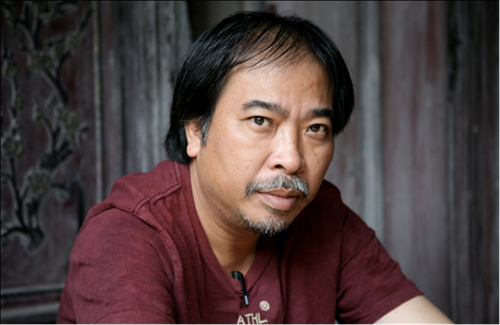Up to now, thousands of books in different genres about the War in Vietnam (called the "Vietnam War" by the US and the Western countries and the "Anti-US Resistance War" by Vietnam) were published, focusing on finding the answers for what is truly the reason for the war and why the US military had failed. Particularly, several authors at the William Joiner Center (the William Joiner Institute for the Study of War and Social Consequences) have discovered something, which they called “A big discovery about the War in Vietnam”.
In 1994, the University of Massachusetts Press published the first poetry collection of Vietnamese authors named “Poems from the Captured Documents” translated by poet Bruce Weigle and Doctor Kim Thanh. How could a collection of Vietnamese poems be translated and published in the United States after the war? During the war, the US intelligence collected various papers such as diaries, letters, and so on, from Vietnamese fallen and captured soldiers. After the war, the papers were decoded and transferred to the Vietnamese Ministry of Foreign Affairs.
    |
 |
|
Poet Nguyen Quang Thieu. (Photo: Vietnamnet) |
However, the University of Massachusetts bought the copies of these decoded papers and handed over to the William Joiner Center. Researchers of the center discovered that there are almost peaceful birds and poems inside. Notably, the poems did not tell death, terror or animosity. In contrast, they featured only patriotism, sentiment for relatives and lovers, and dreams of a peaceful life.
In the debut of the poetry collection, I was honored to be invited to read several poems in my mother tongue. I could not hold back my tears when reading these simple words, which were written by real soldiers and not by professional poets. Poet Kevin Bowen, a war veteran who had been in Ba Den Mountain in Tay Ninh province, said at the debut, “The poetry collection is the biggest discovery about the War in Vietnam because it is the discovery of the soul and culture of a country.”
Apart from the poems, there were also diaries of Vietnamese liberation soldiers. During the visit to the US in 1994, poet Pham Tien Duat made many copies of pages of these diaries and quoted various parts from them in his articles.
Meanwhile, Poet and Professor Larry Rottman, a former US war veteran who had been stationed in the Mekong Delta, opened a unique class about the War in Vietnam. He selected several pages of diaries of US war veterans and Vietnamese liberation soldiers to be parts of his lecture. In the class, he asked one student to play role as a US soldier and another student to be a Vietnamese soldier. The two soldiers stood face to face and read their pages of dairy alternately. Hence, all students could imagine what the two sides’ soldiers brought to the war. The American then could hear terror, anger, suspicion, curses from American soldiers, but they also feel the desire of peace and independence, the love for the nation and families from Vietnamese soldiers. The Central Intelligence Agency (CIA) and the Defense Intelligence Agency (DIA) could discover secrets related to the enemy's weapon and combat plans, but never find out the true heart of a culture. Therefore, the discovery of the Vietnamese culture and people might be considered as the biggest revelation of the American in the war that they undertook.
This is also the reason why many US war veterans decided to return to Vietnam to open up more "doors" for American people to understand more about the country. On the occasion of the 30th anniversary of the literature cooperation between US war veterans and Vietnamese writers, the Mayor of Boston City of Massachusetts decided to hold "Kevin Bowen Day" to honor the contribution of the US war veteran to helping the American people understand more clearly about the culture of their opposite numbers in Vietnam.
Written by Nguyen Quang Thieu
Translated by Trung Thanh